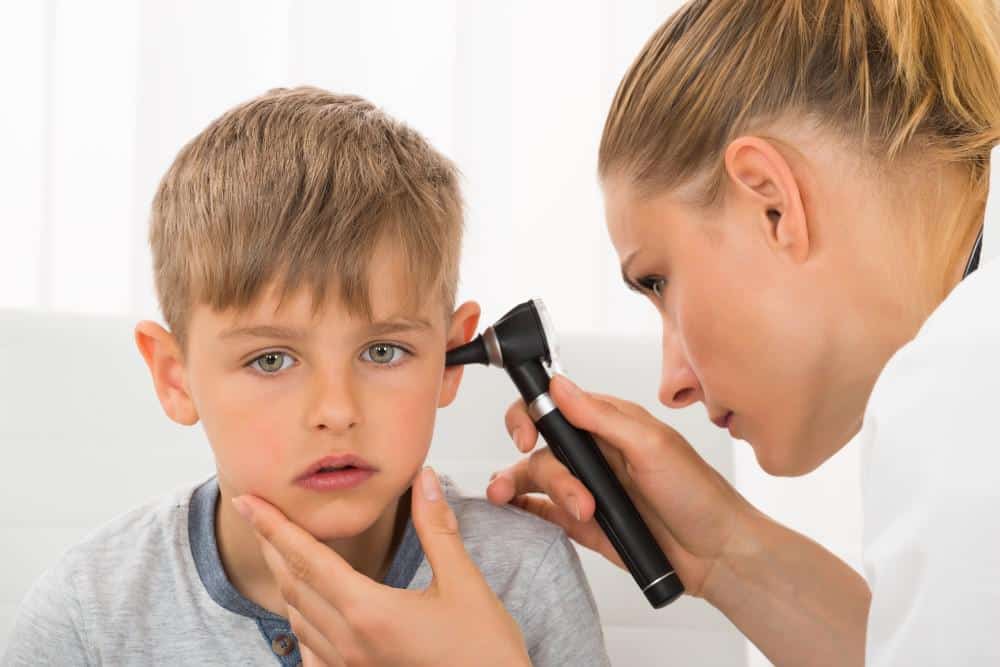Why You Shouldn’t Ignore Your Child’s Ear Pain

Home > Blog > Why You Shouldn’t Ignore Your Child’s Ear Pain
Why You Shouldn’t Ignore Your Child’s Ear Pain
If it seems that your child’s life is a constant cycle of ear infections, you may be correct. Children are not only more prone to ear infections than adults, 5 of 6 children will have at least one infection by the time they reach the age of 3.
Medically called otitis media, ear infections often pass quickly, clearing up on their own in a few days. However, there’s no guarantee that this will always be the case, so while it might be tempting to ignore yet another ear infection, it’s a condition that you want to monitor in case it advances past the nuisance stage.
Why children are prone to ear infections
Maturing bodies aren’t always just miniature versions of adults. Before a child’s head matures, the eustachian tubes, important drainage and pressure adjustment passages between the ears and throat, are closer to level. In adults, these tubes have a steeper angle, so there’s a gravity assist to drain fluid from the middle ear.
Combined with the smaller diameter of these growing tubes, children are more likely to retain fluid in the middle ear, where it can become infected, particularly during a respiratory illness such as a cold or flu. Sinus and nasal congestion can further block the inefficient drainage of the immature eustachian tubes.
Your child is also at a stage where their immune system may not be up to the task of fighting every infection.
Signs that your child has an ear infection
When your child is old enough to communicate their discomfort and symptoms, it’s easy to recognize the signs of an ear infection. However, these infections can hit even before your child can speak, so sometimes you must let their behavior guide you.
Ear infection symptoms usually come on quickly. Complaints of ears hurting is often the first sign, particularly when your child is lying down and pressure on the middle ear increases. Pulling at the ear or hands over the ear may be non-verbal indicators that an infection has started.
When these symptoms combine with general fussiness, mood changes, frequent crying, and changes in sleep patterns, you may have reinforcing evidence of an ear infection. Reduced hearing and changes to your child’s coordination and balance can also indicate trouble.
Fever above 100℉ or drainage of fluid from the ear could signal that the infection is reaching serious levels.
When to visit the doctor
It’s time to contact Dr. Franklyn Gergits and the team at either office of the Sinus & Allergy Wellness Center when your child’s pain lasts more than a day or two, or when it reaches a level of severity that distresses your child. If your child is under 6 months old, any sign of ear infection should be investigated by Dr. Gergits.
Signs of ear infection that accompany a respiratory infection are more likely to develop complications, another reason to book an appointment, as is any sign of discharge from the ear.
It’s better to be safe than sorry, and childhood ear infections sometimes qualify for extra attention. Whenever you’re in doubt, call the most convenient office of the Sinus & Allergy Wellness Center, or request an appointment using the convenient online tool. You can also send the team a message here on the website.
Ear infections might be a rite of passage, but there’s no reason your child should suffer needlessly.
Disclaimer:
The information provided in this article is for informational and educational purposes only and does not constitute medical advice. It is not intended to diagnose, treat, cure, or prevent any disease or medical condition. Always seek the guidance of your physician or other qualified healthcare provider with any questions you may have regarding a medical condition or treatment.
Results may vary: Treatment outcomes and health experiences may differ based on individual medical history, condition severity, and response to care.
Emergency Notice: If you are experiencing a medical emergency, call 911 or seek immediate medical attention.



